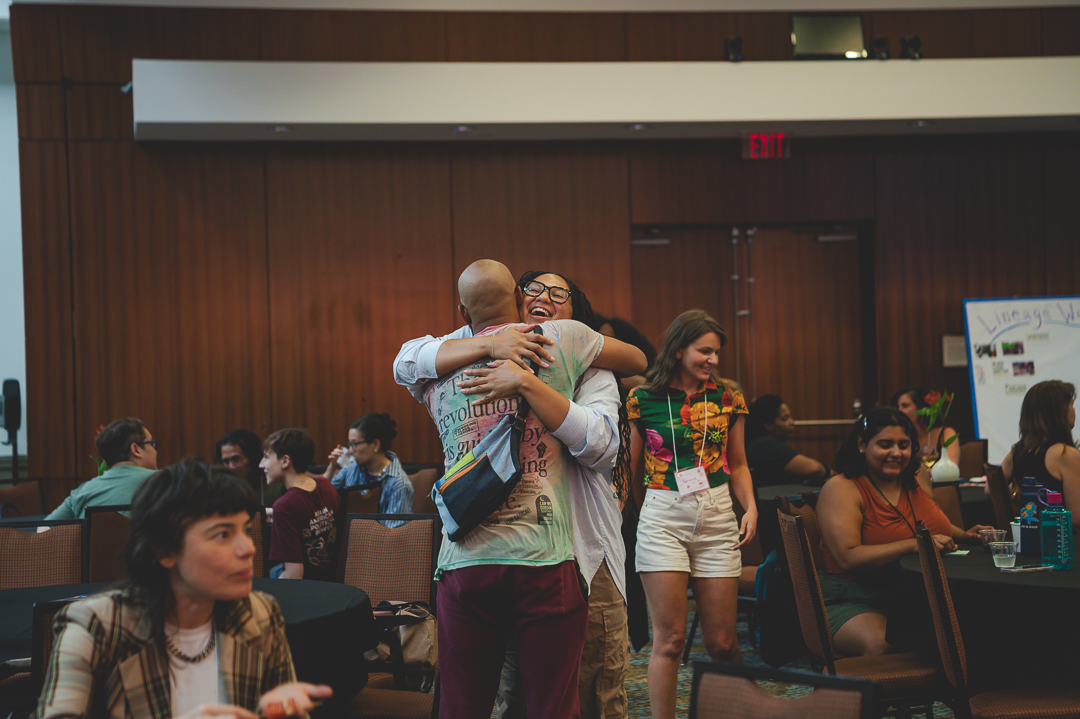Reflection and evaluation allows us to understand if we are on the path to realizing our dreams. Heading into our third year of building the next generation of social justice communicators, we took time to reflect on what we have done so far. We produced a report the evaluates our work and offers lessons for the field on what it takes to integrate communications as a core strategy for social change. Here is the introduction of the report.
ReFrame is moving forward by doubling down on our commitment to developing skilled communications leaders for the social justice field. The ReFrame Mentorship, in this period of consolidated right-wing political power and media control, reaffirms the need for a rigorous investment in the development of progressive, grassroots communications strategists.
Now, more than ever, we need grassroots social justice leaders with the high-level skills necessary to influence public debate.
We are moving forward with this commitment for two reasons. First, our evaluation shows we are succeeding in developing the next generation of grassroots communications strategists for the social justice field. Second, history shows that we needed this kind of rigorous, continuous communications leadership development at least a generation ago.
This is part of how we got here.
For too long in the social justice field, we’ve treated communications as an afterthought or a magic bullet. These trends emerge from a common misunderstanding of communications as a tactical activity rather than a core strategy. This misunderstanding leads local and regional organizations astray. Rather than proactively building communications capacities and seeking support to do so, organizations respond and react instead of shaping and controlling the conversation on their issue.
At the same time, few foundations and donors have funded communications infrastructure that would enable grassroots organizations to prioritize communications as a core strategy. Rather than invest in grassroots-based communications leaders, both organizations and funders over-rely on outsourcing to PR firms based in New York, the Beltway, etc. Many of these firms lack adequate understanding of social justice goals and grassroots organizing strategies. Others lack the cultural competency to effectively work with the most impacted populations, especially those outside of urban centers like New York and Washington, D.C.
Ironically, the right-wing has long operated with a clear understanding of strategic communications. Various factions on the Right, from moderate conservatives, to the Tea Party, to the so-called “Alt-Right,” have long understood that strategic communications is central to advancing political agendas and requires a long-term, multi-faceted approach. This approach includes the development of skilled strategists, investment in long-term agendas, creation and maintenance of infrastructure, and the placement of strategists as “meaning-makers” in all arenas of society, from the grassroots to government, from think tanks to academia. Conservative funders — including the Koch Brothers — have invested in this approach to strategic communications for decades, often in the form of large grants with little-to-no strings attached.
As a result, the Right boasts a bloc of well-known pundits and be- hind-the-scenes architects, like famed communications strategist James O’Keefe (see sidebar on page 6), who have built a lasting infrastructure and an echo chamber that seeks to undermine progressive movements. There is no question that this right-wing communications machine fueled Trump’s rise to power and continues to push the socio-political landscape toward bigotry and hate.
But we are ready to push back.
ReFrame is heeding Grace Lee Boggs’ prescient call to action: “We are at one of the great turning points in human history … [we] cannot continue in the same old way.”
At a sector level, this means taking bold steps toward deeper investment in a robust communications ecosystem. The ReFrame Mentorship is one part of the solution, working in coordination with experts in digital organizing, capacity building and strategic communications to strengthen communications infrastructure and leadership for the social justice field.
We offer this evaluation of ReFrame’s second year in the spirit of building this ecosystem together.
We are committed to growing our impact, sharing our lessons and modeling what it means to “do things differently” for immediate gains and long-term change. We thank all of our funders, mentors and participants for believing in ReFrame from the beginning, and we urge others to prioritize strategic communications as a core strategy so that we all can win, BIG!







































.jpeg)


.png)

%20(1).png)




























